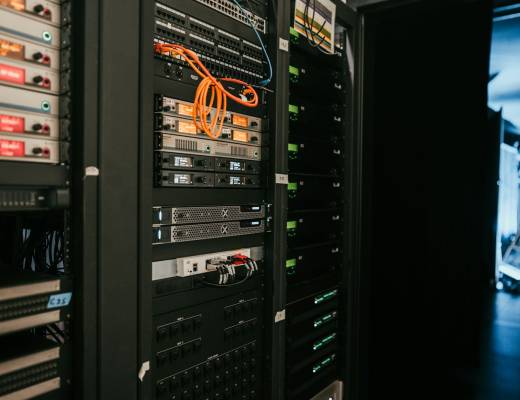Choosing an asset tracking system can add tremendous value to your business process. However, choosing the right one can be challenging due to the variety of options available. This compendium will highlight key considerations when selecting the correct asset tracking system.
Understanding Asset Tracking Systems
Asset tracking systems refer to solutions that help a company track and manage its assets. These systems use GPS, RFID, and barcodes to offer real-time insights. This data helps them maintain efficiency while reducing costs and managing accountability.
Assessing Business Needs
You have to know what you need from the system before choosing one. Different industries have unique needs. For example, tracking heavy machinery is a priority for a construction company, while a retail business must focus on inventory tracking. These needs will direct the decisions made.
Technology Options
Various technologies support asset tracking. GPS is more accurate for tracking vehicles and heavy machinery. Scanning RFID tags takes little time, which makes it suitable for inventory management. Bar codes are inexpensive, and companies can use them on smaller items. Considering the business context will help select the right technology, as each has its strengths.
Ease of Use
User-friendly systems enhance productivity. The asset tracking system should be natural and straightforward for employees to navigate. A complicated interface can result in errors and inefficiency. Look for systems with simple dashboards and clear instructions to ensure employees can use them appropriately.
Integration with Existing Systems
In almost all cases, though, a business uses various software solutions. A solid asset tracking system should integrate well with existing systems. This aspect guarantees a fluidity of information and avoids data silos. Accounting or inventory management software compatibility is beneficial.
Scalability
A scalable system can grow with the business. It must evolve with changing needs without overhauling it. Such flexibility is time-saving and resource-saving in the long run, as companies can grow without the fear of being hindered by tracking capabilities.
Cost Considerations
The budget is one of the most essential criteria in decision-making. Investing in a quality, professional system is intelligent, but it should be within the budget. Businesses must factor in the upfront and long-term costs, such as maintenance and software updates.
Security Features
Data security is paramount. Asset tracking systems must keep sensitive data safe. Seek systems with encryption, secure user access, and regular upgrades to protect against cyber attacks. A secure system earns the trust of stakeholders while ensuring adherence to industry standards.
Customer Support and Training
Reliable customer support is invaluable. If any issues arise, quick assistance reduces downtime. Also, correctly trained employees will use the system well. Other providers offer training and online resources that can help.
Customization Options
Customization is the only practice that enables any business system to meet the unique needs of every industry. The customizable features can relate to report formats, alerts, or interface design, to name a few. An individualized system can improve overall efficiency.
User Reviews and Feedback
User reviews offer information about the system’s performance; they can be a source of feedback from other companies. They help businesses learn about their real-life performances and the pros and cons. This information can help guide the selection process and avoid issues.
Trial Periods and Demonstrations
Several providers provide trial modules or demos, which allow businesses to try the systems before investing in them. A hands-on experience will also show how a system aligns with the organization’s specific needs and whether it suits the organization.
Environmental Considerations
Environments influence choice in some instances. When it comes to outdoor gear, appropriate tracking devices that resist the weather may be needed. Systems must be robust, resilient, and stable under various conditions. In such a scenario, durability and reliability are of the utmost importance.
Conclusion
There are many considerations in choosing the right asset tracking system for your business. Understanding business needs, reviewing technology alternatives, and assessing budget options ensures an upgraded system supporting business operations. Focusing on simplicity, extensibility, and security makes for a clever investment. A system that suits your company will contribute to the efficiency of your work and your business’s growth in the long run.
Photo by ZBRA Marketing; Unsplash







